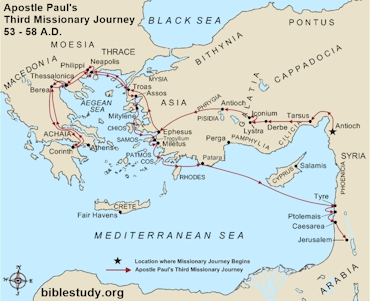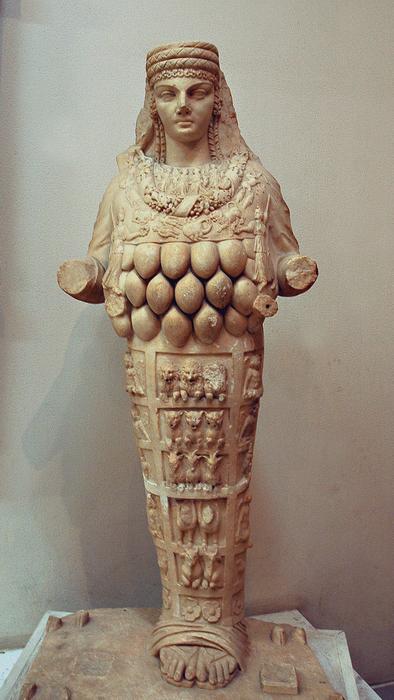
Remember: hostile Jews had grabbed Paul in the temple and would have killed him had the Roman military not intervened. Before soldiers dragged him into the fortress, Paul was given opportunity to address the crowd. When he mentioned being sent to the Gentiles, the mob exploded again . . .
“As they were shouting and throwing off their cloaks and flinging dust into the air, the commander ordered Paul to be taken into the barracks. He directed that he be flogged and questioned in order to find out why the people were shouting at him like this” (Acts 22:23,24).
Why had the Jews rioted against Paul? This the tribune must determine. He’ll use torture to interrogate him. (Both NIV and NRSV imply flogging and questioning were separate events. Rather, the Greek says “examine with lashes”. In other words, the tribune intended to beat the truth out of the prisoner).
Beating was not new to Paul: five times by Jews and three by Romans. But flogging would be far worse. A soldier would lash his stripped back with a whip of thongs studded with pieces of bone or metal secured to a wooden handle. Tied to a pillar, his back stretched and arms secured, Paul couldn’t protect himself at all. Flogging like this usually caused permanent physical damage, even death.
But God wanted Paul in Rome. Not just in the city, but inside Caesar’s elite imperial guard (Philippians 1:12,13). He couldn’t have Paul maimed or killed in Jerusalem. So, even though author Luke doesn’t mention it, God had preordained Paul be born a Roman citizen.
“As they stretched him out to flog him, Paul said to the centurion standing there, ‘Is it legal for you to flog a Roman citizen who hasn’t even been found guilty?’ When the centurion heard this, he went to the commander and reported it. ‘What are you going to do?’ he asked. ‘This man is a Roman citizen.’ The commander went to Paul and asked, ‘Tell me, are you a Roman citizen?’ ‘Yes, I am,’ he answered. Then the commander said, ‘I had to pay a big price for my citizenship.’ ‘But I was born a citizen,’ Paul replied. Those who were about to question him withdrew immediately. The commander himself was alarmed when he realized that he had put Paul, a Roman citizen, in chains” (Acts 22:25-29).
As soldiers stretched Paul’s arms and tied them with thongs, he asked the centurion overseeing the torture. “Is it legal for you to flog a Roman citizen who hasn’t even been found guilty?” Under Roman law, citizens could be flogged who were convicted of a crime, but not before conviction.
The centurion takes Paul’s question to the commander, who nervously asks Paul, “ . . . are you a Roman citizen?” Paul answers, “ . . . I am”. The commander admits he had to pay a large sum for his citizenship, maybe a bribe to administrators or a flat-out cash purchase from the government. In any case, Paul has accomplished what he wanted. Both men now know that Paul is at least a social-legal equal to the tribune. And he can’t be flogged. The soldiers back off.
“The next day, since the commander wanted to find out exactly why Paul was being accused by the Jews, he released him and ordered the chief priests and all the Sanhedrin to assemble. Then he brought Paul and had him stand before them” (Acts 22:30).
The Roman commander still wants to learn why Paul was accused by the Jews. Next day he orders the Jewish court to interrogate him. Paul will now stand before the Sanhedrin, Israel’s Supreme Council.
* * *
Five decades earlier, Paul had been born in Tarsus (today’s Turkey), a large trading center on the Mediterranean coast. How his Jewish father gained Roman citizenship isn’t known. Perhaps success in business earned him that standing. It was a stature to be prized: it entitled him to Roman rights and privileges throughout the empire, especially the right to a fair trial and humane treatment. As children of immigrants gain citizenship by birth in the U.S., so Paul gained Roman citizenship by birth to a Roman citizen father. To Paul, a zealous Jew sent to Jerusalem to study the Mosaic law with Pharisees, it probably meant little. Until now.
Was it a “lucky break” that Paul could escape flogging? To the contrary, the psalmist writes, “The LORD has established his throne in the heavens, and his kingdom rules over all”. Put that together with David’s words in Psalm 139:13, “For it was you who formed my inward parts; you knit me together in my mother’s womb”, and you’ve got a God who is intimately involved in our births. Not only when but where and to whom. There are no “lucky breaks”, only a Sovereign God who rules all.
Paul’s rescue from flogging is hardly the kind of miracle that draws curious crowds to revivals. But Paul’s birthright, which saved him 50 years later, is no less an act of God than if an angel snatched the whip from the soldier’s hand.
God intervenes in our lives (even before our lives) to protect us. No, it doesn’t mean we’re spared suffering. But there are times when God says to our pain, “That’s enough. Go no farther.”









Recent Comments